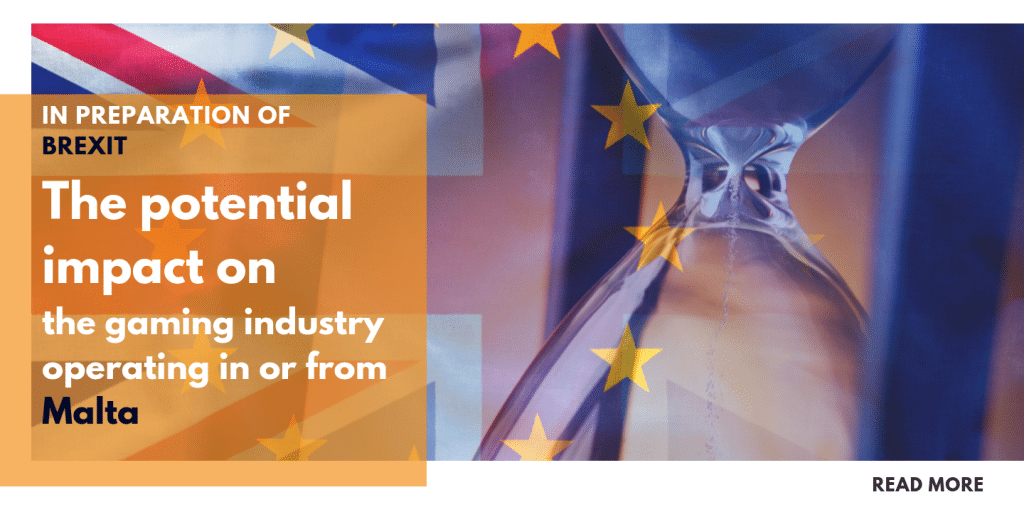The 5AMLD: What changes to expect

The fight against money laundering and terrorist financing in the EU financial market has spurred on the drafting of the fifth Anti-Money Laundering directive (“5AMLD”)[1] to eradicate the risk of having a repeat of such scandals and leaks in the future. The 5AMLD will reinforce what the fourth Anti-Money Laundering Directive (“4AMLD”)[2] had achieved, and will serve to ensure increased transparency, public scrutiny and accountability.
What changes will the 5AMLD introduce?
Changes introduced by the 5AMLD should include:
Widened scope of AML/CFT regime
The 5AMLD has substantially increased the number of entities which must comply with anti-money laundering/combating the financing of terrorism (“AML/CFT”) legislation. The obliged entities now include:
- Persons providing aid, assistance or advice on tax matters as principal business or professional activity;
- Real estate agents when acting as intermediaries in the letting of immovable property having a minimum monthly rent of ten thousand euros,
- Providers engaged in exchange services between virtual currencies and fiat currencies and custodian wallet providers; and
- Persons trading in works of art.
Increased transparency on real owners
Beneficial ownership information on legal entities (such as companies) will be available to the public. While this measure may be perceived as bringing more transparency in the corporate and the financial sectors, discussions and argumentation against such a drastic measure viz a viz a person’s personal data will, in all probability, abound. In terms of the 4AMLD, information on beneficial owners was available provided that the person or organisation seeking to obtain such information “[could] demonstrate a legitimate interest”. This had led to different interpretations as to what constitutes a legitimate interest which had in turn resulted in varying degrees of accessibility across the EU member states.
The issue of diverging and potentially conflicting interpretations of the concept of legitimate interest cannot be said to be have been completely done away with in the 5AMLD since the same directive provides that beneficial ownership information on trusts (previously undisclosed to the general public) will now be available upon the demonstration of legitimate interest. Although the 5AMLD does not provide a uniform definition of legitimate interest, it dictates that the said concept is to be defined by the law of a member state.
Harmonised treatment of high-risk third countries
Business relationships and transactions involving high-risk third countries (as identified by the Commission) will be are now obliged to apply enhanced due diligence (“EDD”) measures as specified in the 5AMLD. Harmonised EDD measures should include:
- the acquisition of additional information on the customer (and the beneficial owner if applicable) and their respective source of funds and source of wealth;
- the acquisition of additional information on the intended nature of the business relationship;
- the acquisition of information on the reasons for an intended or performed transaction.
Senior management approval should also be obtained prior to establishing (or continuing) a business relationship. The paramount importance of enhanced monitoring of the relationship is to be coupled with a selection of patterns of transactions for further examination. The implementation of the above-mentioned measures does not exclude that additional mitigating measures may also be required.
Clarity on Politically Exposed Persons (“PEPs”)
The 5AMLD requires each member state to indicate which functions are considered as prominent public functions. Persons performing such functions should be considered and treated as PEPs for AML/CFT purposes. By moving away from an indicative to an exhaustive list as to what prominent functions render a person a PEP, obliged entities will benefit from an additional degree of legal certainty when considering customer risk.
Additional means of verification
In light of prevalent technological advancements, the 5AMLD recognises that obliged entities may now accept electronic identification means or any electronic identification process accepted by national authorities. Electronic identification is “the process of using person identification data in electronic form uniquely representing [a person]”[3].
Increased cooperation between national authorities
The 5AMLD aims to increase the cooperation and the exchange of information between competent national authorities across different member states. A register of all competent AML/CFT authorities as well as their contact details should be published on the Commission’s website, easing competent authorities’ contact with foreign counterparts. The interconnection of national central registers holding beneficial ownership information will also assist and strengthen national authorities.
When will the 5AMLD come into force?
The 5AMLD entered into force on 9 July 2018 and will have to be implemented by EU member states by 10 January 2020. On 14 October 2019 the Financial Analysis Intelligence Unit (the “FIAU”), which is the Maltese competent authority dealing with AML/CFT, issued a consultation document containing a draft transposition of the 5AMLD provisions to the Prevention of Money Laundering and Funding of Terrorism Regulations[4]. Now that the deadline of the consultation period set on the 5 November 2019 has passed, the FIAU should be embarking on transposing the provisions into the said national legislation.
To conclude, the 5AMLD takes anti-money laundering legislation to the
next level.
[1] DIRECTIVE (EU) 2018/843 OF THE EUROPEAN PARLIAMENT AND OF THE COUNCIL of 30 May 2018 amending Directive (EU) 2015/849 on the prevention of the use of the financial system for the purposes of money laundering or terrorist financing, and amending Directives 2009/138/EC and 2013/36/EU
[2] DIRECTIVE (EU) 2015/849 OF THE EUROPEAN PARLIAMENT AND OF THE COUNCIL of 20 May 2015 on the prevention of the use of the financial system for the purposes of money laundering or terrorist financing, amending Regulation (EU) No 648/2012 of the European Parliament and of the Council, and repealing Directive 2005/60/EC of the European Parliament and of the Council and Commission Directive 2006/70/EC
[3] REGULATION (EU) No 910/2014 OF THE EUROPEAN PARLIAMENT AND OF THE COUNCIL of 23 July 2014 on electronic identification and trust services for electronic transactions in the internal market and repealing Directive 1999/93/EC
[4] Subsidiary legislation 373.01 of the Laws of Malta.





